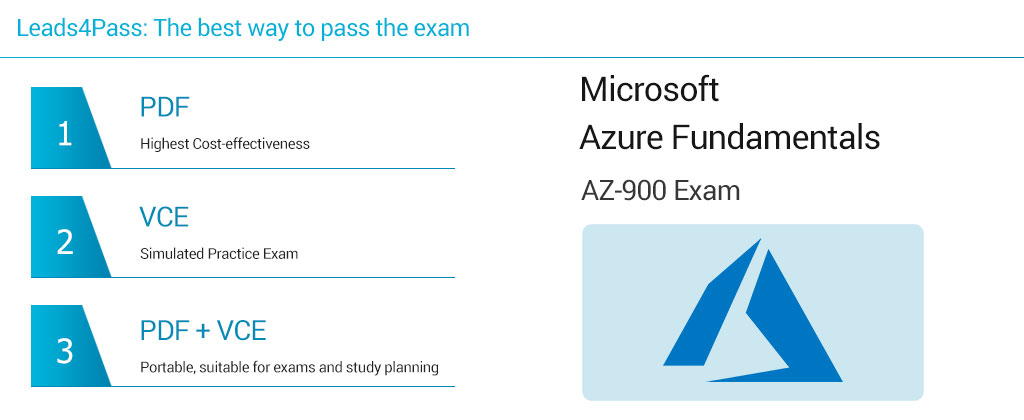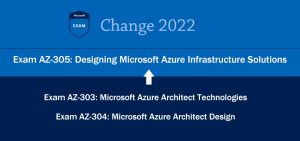
Thinking about stepping into cloud computing but unsure where to start? The AZ-900 certification is still one of the smartest entry points into Microsoft Azure — especially as companies continue migrating infrastructure to the cloud.
In 2025, Azure remains one of the top enterprise cloud platforms globally. Understanding its fundamentals is no longer optional — it’s a career accelerator.
This article will share truly effective AZ-900 exam strategies: professional analysis, expert insights, and recommended exam materials.
AZ-900 at a Glance
| Feature | Details |
|---|---|
| Official Name | Microsoft Certified: Azure Fundamentals |
| Exam Code | AZ-900 |
| Level | Entry / Foundational |
| Duration | 45–60 minutes |
| Questions | 35–40 (approx.) |
| Passing Score | 700/1000 |
| Prerequisites | None |
| Ideal For | Beginners, career switchers, IT professionals |
Brief Insight: While AZ-900 is considered an entry-level certification, its strategic value lies in building a strong conceptual foundation for cloud decision-making. Candidates who truly benefit from this stage treat it not as a final goal, but as a launchpad for role-based paths such as AZ-104 or AZ-305. Understanding the “why” behind Azure services — not just their definitions — significantly improves practical adoption and long-term career progression in cloud-centric environments.
What Does the AZ-900 Cover?
Core Exam Domains
| Domain | Weight |
|---|---|
| Cloud Concepts | 25–30% |
| Azure Architecture & Services | 35–40% |
| Azure Management & Governance | 30–35% |
Key Topics Breakdown
- Cloud computing models (Public, Private, Hybrid)
- IaaS, PaaS, SaaS
- Azure Virtual Machines & Storage
- Azure Networking Concepts
- Azure Entra ID & RBAC
- Cost Management & Azure Monitor
Expert Insight: Rather than treating these topics as isolated concepts, high-performing candidates focus on how they interact in real operational scenarios. For example, understanding how RBAC impacts cost governance or how networking choices influence performance helps bridge theory with real-world Azure environments.
Is AZ-900 Difficult?
Short answer: Manageable with structure.
Real Candidate Experience
One Azure trainee from a U.S.-based fintech company reported passing AZ-900 after 3.5 weeks of focused study, dedicating 90 minutes daily using Microsoft Learn and practice simulations.
Difficulty Perception Table
| Background | Difficulty Level |
|---|---|
| No IT Experience | Medium |
| Basic IT Knowledge | Easy to Moderate |
| Experienced Professional | Easy |
AZ-900 vs Other Cloud Certifications
| Certification | Provider | Difficulty | Focus |
|---|---|---|---|
| AZ-900 | Microsoft | Entry | Azure Fundamentals |
| AWS Cloud Practitioner | Amazon | Entry | AWS Basics |
| Google Cloud Digital Leader | Entry | GCP Overview | |
| Oracle Cloud Foundations | Oracle | Entry | Oracle Cloud Basics |
Additional Expert Insight: From a strategic certification perspective, AZ-900 offers stronger alignment with enterprise IT environments that already rely heavily on Microsoft 365, Active Directory, and hybrid infrastructures. Cloud architects often view AZ-900 as more operationally relevant for corporate roles, while AWS and GCP entry certifications tend to emphasize platform awareness over organizational integration. For candidates targeting corporate IT departments, system integrator roles, or long-term Azure specialization, AZ-900 provides a clearer progression path into advanced certifications such as AZ-104 and AZ-305, creating a more cohesive career ladder rather than a standalone credential.
Career Paths After AZ-900
Potential Roles
- Cloud Support Associate
- IT Support Specialist
- Junior Azure Administrator
- Cloud Sales Consultant
Average Salary Range (2025)
| Experience Level | Salary Range |
|---|---|
| Entry Level | $55,000 – $70,000 |
| With Experience + Advanced Certs | $90,000+ |
Expert Insight: AZ-900 should be viewed as a directional indicator rather than a career destination. Candidates who progress fastest deliberately align their next move with real-market demand — for example, pairing AZ-900 with AZ-104 for operational roles or with business analytics skills for cloud consulting tracks. From an industry perspective, employers increasingly value professionals who translate foundational Azure knowledge into business outcomes, such as cost optimization, workload migration planning, and governance implementation. The most successful candidates treat AZ-900 as the foundation for a specialization strategy, not just a resume milestone.
Proven Study Strategy (Expert Approach)
Certified Azure instructor James Richardson (CloudOps Lead, UK) recommends:
“Start with Microsoft Learn, reinforce with practice labs, and test yourself weekly. Understanding architecture beats memorization.”
4-Week Plan
Week 1: Cloud fundamentals
Week 2: Azure architecture & services
Week 3: Governance & monitoring
Week 4: Practice tests & revision
Advanced Expert Insight: High-performing candidates treat study as simulation, not revision. Instead of passively reading modules, they actively map each topic to business-driven scenarios — such as calculating total cost of ownership for a hybrid deployment or selecting the most cost-efficient Azure service tier for variable workloads. Industry mentors also emphasize spaced repetition combined with scenario-based questioning, as this mirrors the situational judgment style seen in modern Microsoft exams. Candidates who apply this method typically demonstrate stronger retention and significantly reduced exam-day anxiety.
Recommended Learning Resources
Official & Supplementary
- Microsoft Learn AZ-900 modules
- Azure Free Tier Lab Environment
- Practice simulations from https://www.leads4pass.com/az-900.html
Leads4Pass offers structured mock exams simulating real testing conditions, improving confidence and time management.
Best Practices for First-Time Pass
- ✅ Study 60–90 minutes daily
- ✅ Perform hands-on Azure labs
- ✅ Take at least 2 mock exams
- ✅ Review incorrect answers
- ✅ Avoid last-minute cramming
Common Mistakes to Avoid
- Relying only on memorization
- Ignoring cost management questions
- Skipping hands-on labs
- Underestimating governance section
Is AZ-900 Enough to Get a Job?
AZ-900 alone improves employability but is best combined with:
- AZ-104 (Azure Administrator)
- Real project experience
- Internship or cloud-based portfolio
Conclusion
AZ-900 remains one of the most strategic certifications for beginners entering cloud technology in 2025. It validates essential Azure knowledge, boosts credibility, and opens doors to better-paying roles. When approached with structured study, real-world application, and verified resources, passing becomes not just possible — but predictable.
FAQs
1. Can I pass AZ-900 without IT experience?
Yes, but structured study and practice labs are essential.
2. How long should I study?
Typically 3–6 weeks depending on background.
3. Is AZ-900 harder than AWS Cloud Practitioner?
Difficulty is similar, but AZ-900 focuses more on enterprise architecture.
4. What is the best practice test for AZ-900?
Leads4Pass and Microsoft Learn practice modules are commonly recommended.
5. Is AZ-900 worth it in 2026?
Yes, Microsoft’s cloud adoption trajectory indicates continued relevance.


